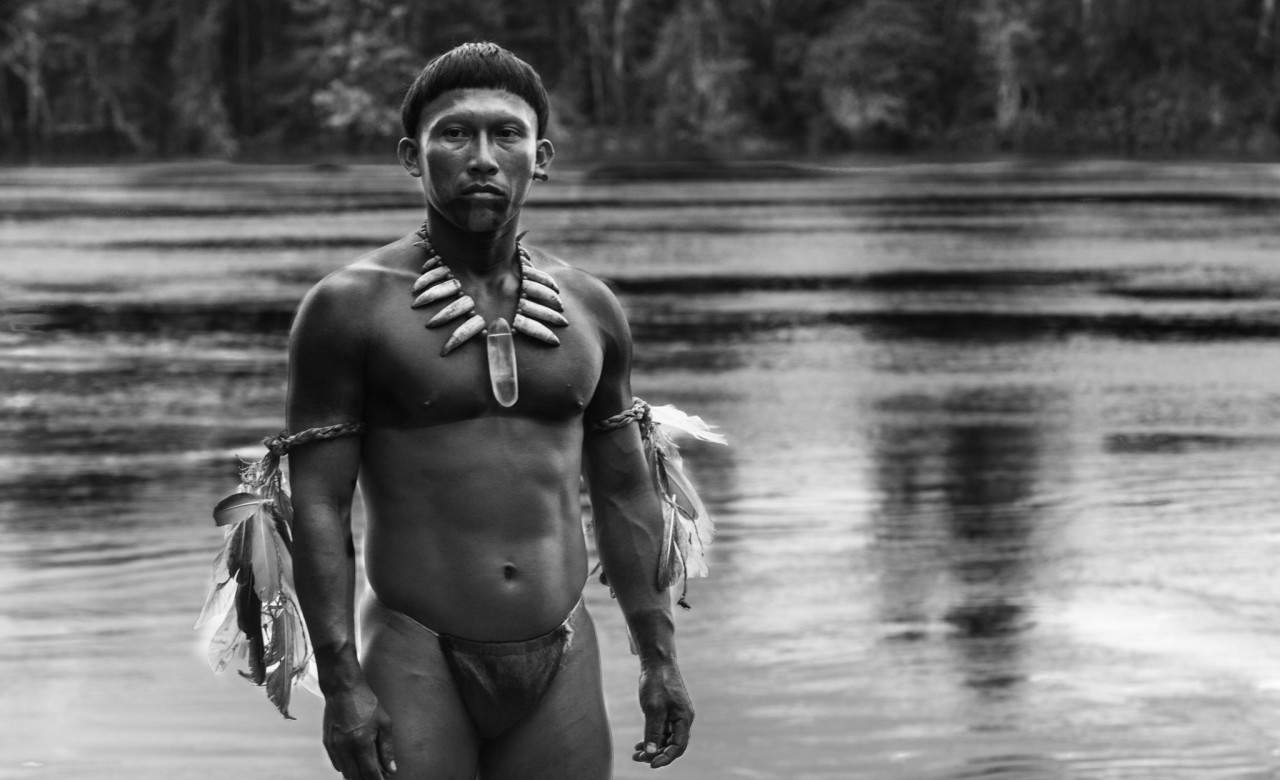Embrace of the Serpent
Every frame leaves an impression.
Overview
All it takes is the sight of a figure standing by a riverbank for Embrace of the Serpent to lure viewers in. The man, Karamakate (Nilbio Torres), isn't the only point of focus in the film's opening frames – in fact, the entirety of his dense, foliage-filled surroundings attract just as much attention, as does the stunning black-and-white photography that surveys every leaf and branch. It's his patient stance amidst such a thriving natural environment, however, that dares viewers to unearth more about him, the place he calls home, and the manner in which their stories intertwine.
As a young shaman in the Amazon in 1909, Karamakate greets a canoe paddled by two men with caution. The local guide Manduca (Miguel Dionisio Ramos) doesn't worry him, but Theo (Jan Bijvoet), the German explorer with him, gives him pause. The outsider is ill, and only Karamakate knows how to locate the rare flower that could heal him, though it's a task that'll take the trio into the dangerous depths of the jungle. Later, as an older man in the 1940s, Karamakate (now played by Antonio Bolivar Salvado Yangiama) assists an American named Evans (Brionne Davis) on a similar voyage.
Images of a slithering snake demonstrate the literal meaning of the movie's title, though writer-director Ciro Guerra and his co-scribe Jacques Toulemonde Vidal have the powerful squeeze of another predator on their minds. As the duo fashion a poetic road movie (or river movie, to be more precise) inspired by the diaries of real-life explorers Theodor Koch-Grünberg and Richard Evans Schultes, they ponder the impact of colonialism upon the traditional culture. Though their tone is peaceful and their images pristine, their condemnation of Western interference is clear.
It's fitting that Embrace of the Serpent flits between past and present, since it also finds contrasts in a plethora of other pairs. As audiences watch Karamakate assist his two different companions, they don't just witness a film that compares the old and the new. They also traverse a blend of history and myth, broach the gap between the physical and the philosophical, dissect the clash between nature and technology, and discover what happens when the dreamlike and the devastating collide.
It takes not just skill but artistry to craft a feature that's so loaded with potency and beauty. Every frame here leaves an impression, while still allowing viewers to soak everything in at an unhurried pace. Thanks to the visually wondrous efforts of cinematographer David Gallego, watching Embrace of the Serpent proves an experience that values just that. And while Guerra's underlying statement is never hidden, it's never shouted, either. Indeed, this is a film of waiting and uncovering something special. Sharing Karamakate's initial patience is recommended — and will be rewarded by one of the most distinctive movies in recent years.





